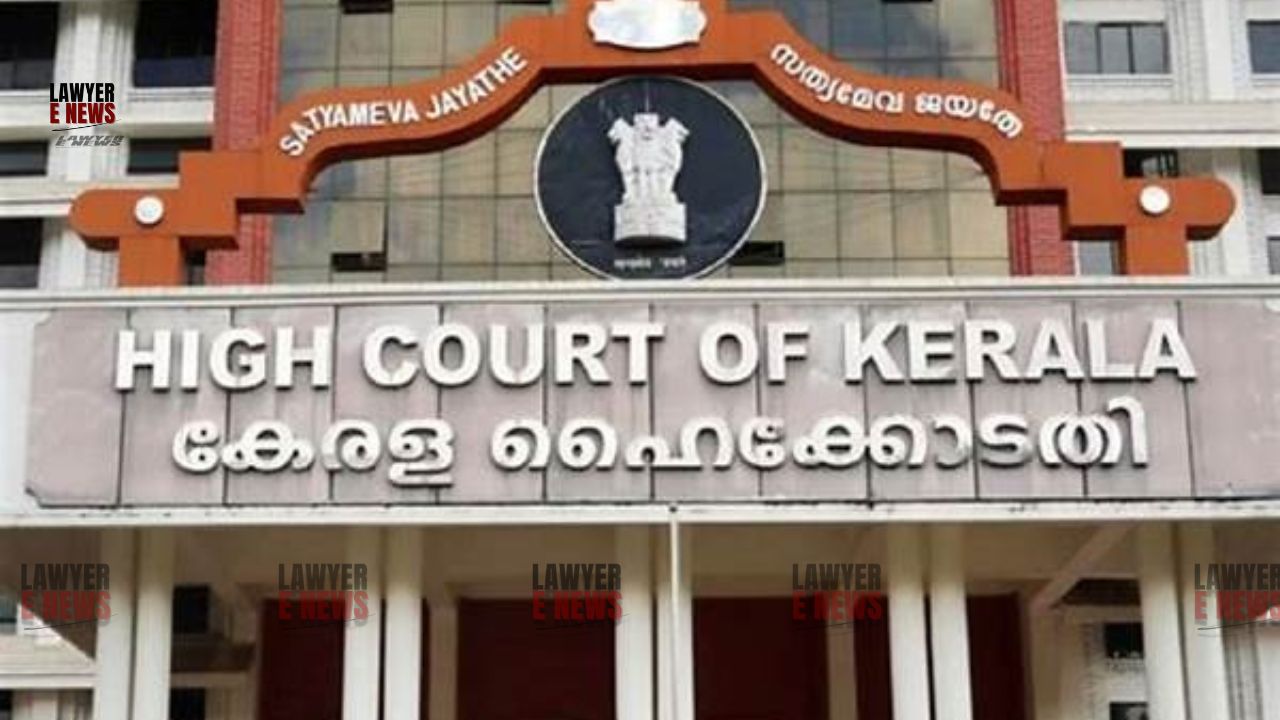-
by Admin
15 February 2026 5:35 AM



On October 24, 2024, the Kerala High Court delivered a significant ruling in the case of P.V. Nidhish & Anr. v. Sivaprakash, President, Orchid Garden Apartment Owners Association, addressing the requirement for real estate project registration under the Real Estate (Regulation and Development) Act, 2016 (RERA). The Court held that the existence of an Occupancy Certificate issued before RERA's enactment is sufficient to exempt a project from mandatory registration, reinforcing that such a certificate is conclusive of project completion under Section 3 of RERA. The decision also restricted the use of additional Commission and Expert Reports in verifying project status, limiting them to cases where the Occupancy Certificate's issuance date remains unverified.
The dispute centered around the Orchid Garden project in Kozhikode, where the respondent, the President of the Apartment Owners Association, alleged that the developer (represented by the appellants as legal heirs of the original promoter) had not transferred undivided rights in the common area to the association and retained a portion of the land for further construction. The respondent also contested the developer’s claim that the project was completed prior to RERA's implementation in 2017, thus negating the need for registration.
Upon the Association's complaint, the Kerala Real Estate Regulatory Authority (K-RERA) initially ruled that the project did not require RERA registration, considering that the flats had been occupied, and property taxes were being collected. However, on appeal, the Kerala Real Estate Appellate Tribunal remanded the matter, instructing K-RERA to verify the Occupancy Certificate's issuance and consider evidence, including reports from a Commissioner and Expert Engineer, to determine whether the project was truly complete by the RERA cut-off date.
Key Issues and Court Observations
1. Validity of Occupancy Certificate as Proof of Completion
The primary issue was whether the issuance of an Occupancy Certificate before RERA’s commencement exempts a real estate project from registration under Section 3 of the Act. Section 3(1) of RERA mandates registration for ongoing projects as of May 1, 2017, that do not have a Completion Certificate. However, Section 3(2)(b) exempts projects with a Completion Certificate issued prior to RERA's enactment.
“The issuance of an Occupancy Certificate by the local authority signifies completion as per RERA's requirements. If the Occupancy Certificate was issued before RERA's commencement, further inquiry into project status is unwarranted.”
Justice Abdul Hakhim emphasized that an Occupancy Certificate issued by a local authority should be treated as equivalent to a Completion Certificate under RERA for Kerala projects. Relying on past decisions in Siji Jacob v. Ultima Builders and Graceland Foundation v. Kerala Real Estate Regulatory Authority, the Court held that the Occupancy Certificate satisfies the statutory requirement, precluding the need for additional certification of project status.
2. Use of Commission and Expert Reports in Determining Project Status
The Tribunal had directed K-RERA to examine Commission and Expert Reports to assess if the project was ongoing. However, the Court limited this direction, ruling that such evidence should only be considered if the date of the Occupancy Certificate remains unverified.
“The K-RERA shall consider the Commission Report, Expert Report, and associated evidence only if the existence and issuance date of the Occupancy Certificate are not proven,” the Court directed.
This restriction was grounded in the Court’s view that RERA does not empower regulatory authorities to second-guess Occupancy Certificates issued by competent local bodies. If a genuine Occupancy Certificate exists with a pre-RERA date, K-RERA should accept it as conclusive of project completion.
3. Judicial Deference and Scope of RERA Authority
The appellants expressed concerns that the Tribunal’s broad evidentiary scope could lead K-RERA to overreach its jurisdiction by evaluating construction quality or other defects irrelevant to the project's registration status. Addressing these concerns, the Court stated:
“The Commission and Expert Reports should not be used to expand the scope of the complaint beyond the registration question. Should K-RERA misuse this evidence, the appellants are entitled to object on jurisdictional grounds.”
The Court underscored the principle of judicial deference, directing K-RERA to adhere strictly to the registration issue without delving into construction defects, which fall outside its mandate if the Occupancy Certificate predates RERA.
The Kerala High Court modified the Tribunal’s remand order, confining K-RERA’s inquiry to verifying the Occupancy Certificate’s issuance date. The Court emphasized that an Occupancy Certificate, if proven to exist before May 1, 2017, is conclusive evidence of project completion under RERA, rendering further investigation unnecessary.
This judgment reinforces the legal status of Occupancy Certificates as definitive proof of project completion under RERA, thereby simplifying compliance for real estate developers. By restricting the evidentiary scope to only cases where the Occupancy Certificate's issuance date is unproven, the Court has safeguarded developers from unnecessary regulatory burdens when they possess valid completion documentation.
Date of decision: 24 October 2024
